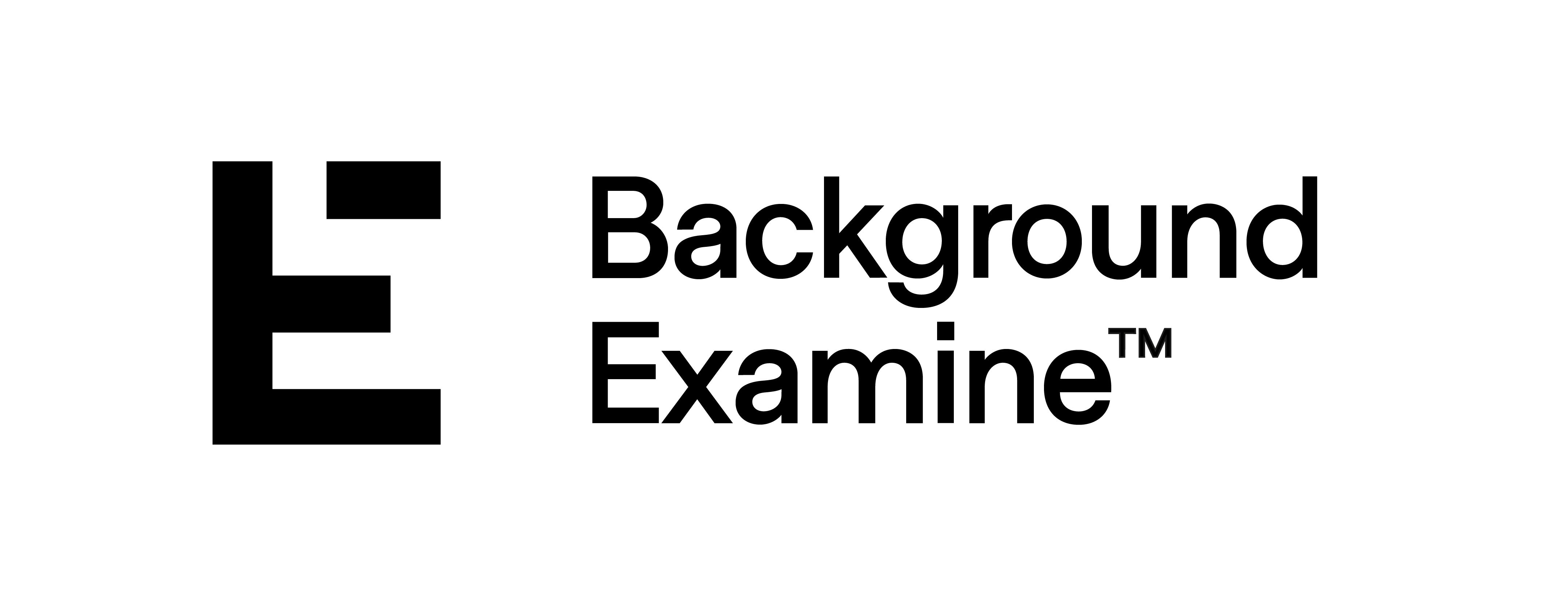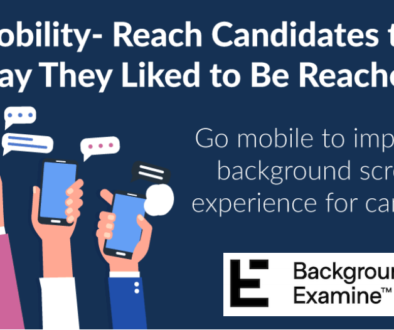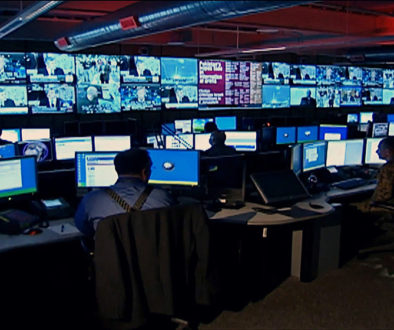Understanding background screening and the different products available
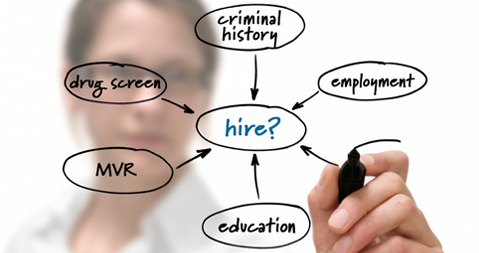
The background screening process has many pieces. As the applicant is moved through the interview process, at some point they were provided with a disclosure that a background check is going to be requested by the employer, and they signed an authorization, allowing their future employer to look into specific areas of their life via a third-party consumer reporting agency (CRA). The employer decides what types of background checks will be done, which are generally consistent by position. The employer’s assessment of your background screening will be entirely different than those reviewed for another candidate.
ITS NOT LIKE TV!
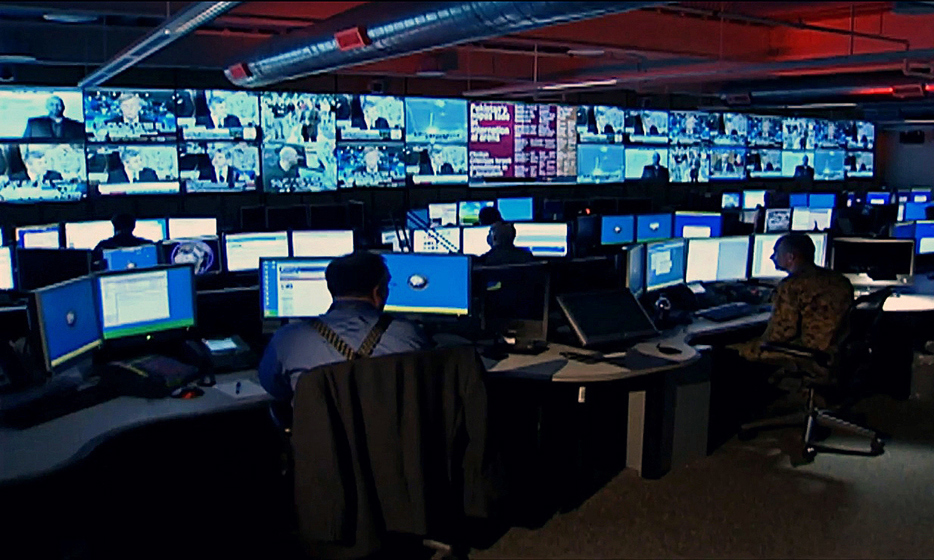 It’s important to understand that there isn’t one source of information about an applicant. Background checks aren’t like those TV crime dramas where one person with computer skills sitting in front of a computer system can pull up everything about you in less than 30 seconds.
It’s important to understand that there isn’t one source of information about an applicant. Background checks aren’t like those TV crime dramas where one person with computer skills sitting in front of a computer system can pull up everything about you in less than 30 seconds.
Background Screening data comes from various state and national databases at different levels and can also include calling employers and universities, looking up public records, and even, when required by certain jurisdictions, physically going to courthouses to retrieve information. This process is usually completed in a few days, but can sometimes take two weeks or more and is contingent on returned phone calls, a court’s public record computer systems functioning properly, holidays, even government shut-downs. If you’ve lived, worked or gone to school in multiple states or overseas, the process can take longer.
Lets take a look at several pieces to the Background Check.
The most popular types of background checks are criminal or other public records searches, verifications of previous employment and/or references, identity, education and motor vehicle records. Although if the job is within the banking and finance industry, or if your employee will be directly handling money, the employer may require a credit check on that individual. If you are driving a company vehicle, you will most likely be subject to Motor Vehicle Records and Drug and Alcohol Screening.
- Criminal Records

- We may search for criminal records from local, regional and federal authorities. How far back in history they go is determined by the FCRA or the state; The FCRA and several states restrict the reporting of convictions that occurred more than seven years ago unless certain exceptions are met. The level of detail is dependent on the specific employer specifications.
- Employment Verification
- With your consent, your future employer can contact past employers. A CRA will contact the employers listed on your resume or application to verify the dates you worked and the positions you held. They may also contact references you have provided to ascertain performance and character. This process can take anywhere from 2 days to 2 weeks dependent on the response from previous employers.
- Education / Licenses
- Like verifying past employment, the CRA will contact the educational or licensing institutions the applicant has listed
 to verify their course of study and degrees earned. They will also research any professional licenses to ensure that they are all up to date, provided the prospective employer finds that they are necessary for the position. Note that many educational institutions do not respond directly to requests for information. Instead, they subscribe to an educational reporting provider. These providers verify student records, transcripts and degrees and protect against bogus information.
to verify their course of study and degrees earned. They will also research any professional licenses to ensure that they are all up to date, provided the prospective employer finds that they are necessary for the position. Note that many educational institutions do not respond directly to requests for information. Instead, they subscribe to an educational reporting provider. These providers verify student records, transcripts and degrees and protect against bogus information.
- Like verifying past employment, the CRA will contact the educational or licensing institutions the applicant has listed
- Identity Search

- The identity search verifies that the applicant has a validly issued ID and that their name is assigned to that ID number. The search is performed through various sources, depending on the country where their ID was issued. You may be asked to provide your driver license or passport.
- Motor Vehicle Records
- Employers want and need to know that an employee that will be driving for them is safe and responsible behind the wheel. A review of an applicant’s driving record will show whether they have been involved in risky behavior like excessive speed, or illegal acts like driving under the influence of drugs or alcohol.
- Drug and Alcohol Screening
- If your future employer requests a drug screen, you will go to a collection site (a clinic or a lab) and provide a sample (urine, saliva or hair). The drugs the lab will screen for are dictated by your future employer. Many states have
 legalized marijuana, either medicinally or recreationally, but are not consistent regarding an employer’s need to accommodate marijuana use so depending on your state and your prospective employer, that may or may not be an issue. Illicit/street drugs will show up. Prescribed medication will as well. If you are asked about a doctor-prescribed medication, you need not disclose your medical history, but you may need to provide proof of a prescription from your medical professional.
legalized marijuana, either medicinally or recreationally, but are not consistent regarding an employer’s need to accommodate marijuana use so depending on your state and your prospective employer, that may or may not be an issue. Illicit/street drugs will show up. Prescribed medication will as well. If you are asked about a doctor-prescribed medication, you need not disclose your medical history, but you may need to provide proof of a prescription from your medical professional.
- If your future employer requests a drug screen, you will go to a collection site (a clinic or a lab) and provide a sample (urine, saliva or hair). The drugs the lab will screen for are dictated by your future employer. Many states have
The Short And Simple
Background Screening is a very important part of the hiring process, as highlighted in this recent article, so it is important you understand what goes into screening your applicants. Choosing the right product(s) can make a big difference in the timeframe that the results get delivered. You also need to consider the level of employee to determine what additional information you will want in order to make an informed decision.
The most detailed criminal check would be a National Criminal Database check paired with the County Records Search. This search will uncover any crimes that the applicant has been involved in within the last 7 years (dependent of state regulations) where they have lived, but also pull up any national crimes committed in other states and return results from Sex Offender registries as well as Global Watch Lists.
Make sure you are running the right reports, and if you have any questions about what you may be getting in your background check, please contact us directly so we can review your screening program with you.
